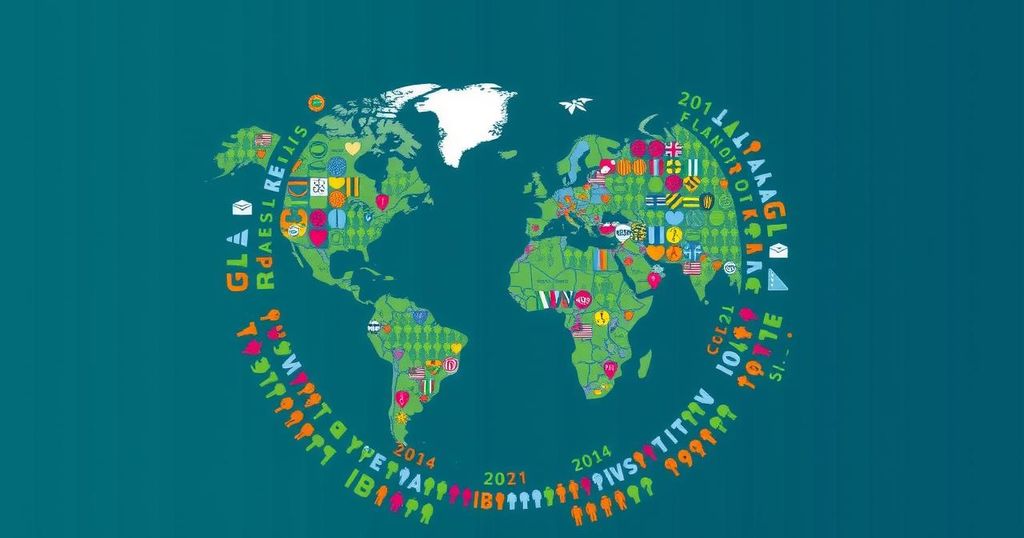The COP29 summit resulted in a $300 billion annual finance commitment to help developing nations address climate change. Reactions varied significantly, with some delegates celebrating the agreement while others criticized it as inadequate. Notable skepticism surrounds the US’s future involvement under Donald Trump’s potential presidency, as developing countries expressed discontent with the overall negotiation process and financing levels. The outcome poses challenges for COP30 in Brazil, highlighting the crucial need for renewed trust and commitment among nations.
The COP29 summit in Azerbaijan concluded with a $300 billion annual global finance target aimed at assisting developing nations in addressing climate change impacts. However, reactions were mixed—some delegates celebrated this as a positive step while others expressed anger and disappointment. COP29 President Mukhtar Babayev handled the closing statements delicately, having prepared two speeches: one optimistic and the other addressing a potential deadlock. Ultimately, he presented the finance plan as a breakthrough despite significant criticism regarding its shortcomings.
The agreement allows 23 nations, including the US, UK, and Japan, to contribute towards this goal, although concerns linger over whether the US will commit under the incoming Trump administration, known for its skepticism towards climate action. Many developing countries voiced their dissatisfaction, arguing the plan fell short of the required $1.3 trillion per year needed for effective climate financing, reducing their prospects for meaningful progress amid rising global emissions.
Negotiations were fraught with tension, leading to complaints from nations like India and Nigeria that the COP29 presidency pushed through the deal without proper consensus following chaotic discussions. Additionally, the war in Ukraine and geopolitical instability have diverted focus and funding away from climate action, exacerbating frustrations among less developed nations who felt sidelined in the negotiations.
The ultimate failure to address fossil fuel commitments and effectively reflect the urgency of the climate crisis deepened distrust among developing countries towards the negotiation process. This sentiment was echoed by various delegates who lamented the political maneuvering overshadowing the pressing need for substantive commitments.
Looking ahead, COP30 in Brazil faces the challenge of rebuilding trust among parties. The summit concluded with an understanding that while the agreement represents a step forward, the underlying tensions threaten the prospects of achieving comprehensive climate objectives in the future. Responsible leadership and commitment from developed nations will be crucial to establishing a more effective global framework.
The COP29 climate summit took place against a backdrop of growing climate urgency, with rising global temperatures and emissions posing severe threats to vulnerable countries. As negotiations have repeatedly shown, there is significant discord between developed and developing nations regarding financial responsibilities and commitments to tackle climate change. The recent summit underscored this divide, illustrating the struggles of multilateral cooperation under domestic political pressures and economic interests.
The outcome of COP29, while a noted financial commitment, revealed deep-seated frustrations and mistrust among developing nations, particularly relating to the adequacy of support for combating climate change. With climate change posing an urgent global challenge, the trajectory for future negotiations remains tenuous, requiring concerted efforts to ensure equitable contributions and commitments from wealthier nations. The upcoming COP30 sets the stage for potential reconciliations and must strive to restore faith in the multilateral climate process.
Original Source: www.asiafinancial.com






